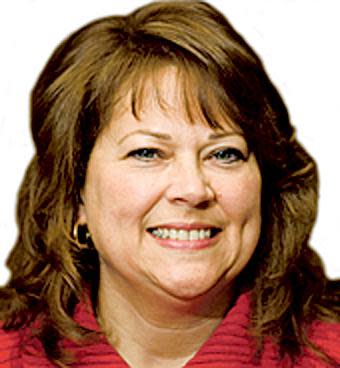Judy Guenseth: Maybe our grandchildren will make apologies for us in 30 years

Nearly 60 years ago a woman wrote a novel about racial injustice in the deep South. Since that time her novel has sold millions and is used in classrooms across the United States to point out tolerance and to condemn prejudice. That novel is "To Kill a Mockingbird,” and it is by far one of my favorite books.
My first exposure to the book was required reading in junior high. I still have that copy complete with classroom pencil marks. The cover disconnected from the body of the yellowed book, but it was with this copy that I shared this story with my children. As I read out loud about Maycomb and life in the 1930s, the raw emotions of disappointment, hurt and shock affected my ability to continue reading without tears. I knew the plot; I knew Tom Robinson was convicted but the story line once again assaulted my heart. How could our justice system work so poorly?
Harper Lee wrote a work of fiction, but her words were reflective of the real life prejudices which occurred in our American society during the Depression. One can only speculate, but it is not likely her work would have been well received if she had written about the prejudices of the early '60s. Yet, in her time, society was willing to look back 30 years and say what was happening then was wrong.
Years later, another book called "The Help" was written in 2009 illustrating the prejudices in the 1960s culture surrounding domestic help in well to do homes. Once again, a book written in the modern day pointing out a prejudiced community 50 years earlier.
"The Help" and "Mockingbird" are not perfect in their development of the minority characters, but each author did represent a point of view which may have been controversial if it was written about present day prejudices rather than the comfortable distance of a former generation’s unfairly held beliefs and practices.
It is easy to read these works of fiction and declare to ourselves we would never sit on a jury and condemn an innocent person or believe that interracial use of restrooms spreads disease. Yet, it is not easy to identify our personal prejudices and admit they are real. Prejudice is an unfavorable opinion or feeling formed beforehand or without knowledge, thought, or reason according to Dictonary.com. Despite any condemnation of these unjust judgements, we’ve all passed judgement without enough information at one time or another. It is too easy for us to project this poor judgement flaw on others and avoid personal evaluation.
These books do provide a compelling story based upon real life situations of how prejudices are so deeply embedded in our way of thinking, we don't recognize them. We believe in the error of our way, and we feel justified in our thinking even to the point of making up a false reality. In "Mockingbird," the town went through the motions of a jury trial, selected the 12 members, appointed a defense counsel but then voted to condemn an innocent man. Following the process to a fault was their excuse for justice. In "Help," the women nestled together in their click and because a popular political figure endorsed a separate-but-equal bathroom law, the people felt exonerated in their bigoted beliefs.
It comes as no surprise that prejudices continue today. In most communities, people have to live in a specific neighborhood and their children need to attend certain schools. Nearly all the parents involved in the child abuse court are poor, yet child abuse occurs in all socio-economic groups. As well, an overwhelmingly majority of inmates on death row are from low income situations before incarceration.
The ideas presented in these books are not for others to see the error of their ways, but they are for each of us to find the unjustified judgments we have assigned to others, especially those with whom we disagree. Eliminating prejudice begins with me. We like to think we have progressed as a society and have learned from the past. In some ways we have, but we could do a better job of recognizing our shortcomings in the present day.
Even though the substance of these books is compelling and convicting, the cultural change which tore down social prejudices of the 1930s and the 1960s did not happen because someone wrote a novel — it occurred because people risked their careers, their reputations, and their very lives to stand up for what is right. Maybe someone will write a book about us 30 years from now and our grandchildren will make apologies for us because they believe we didn't know any better. The truth is we can choose to know better if we take the time to address our own prejudicial shortcomings first.
Judy Johnson Guenseth is a longtime resident of Galesburg, where she works in the public sector.
This article originally appeared on Galesburg Register-Mail: Judy Guenseth: Maybe our grandchildren will make apologies for us
